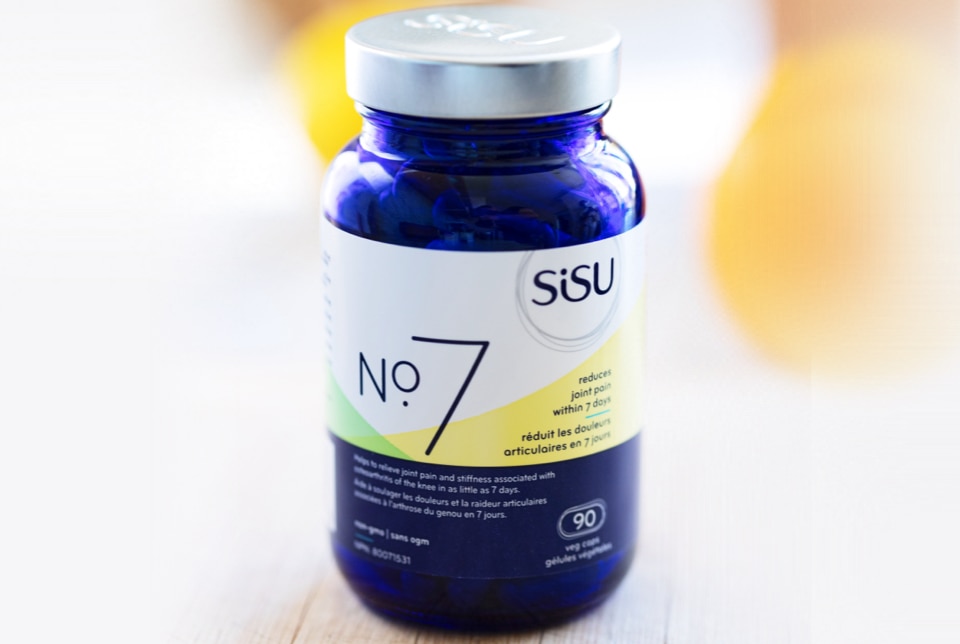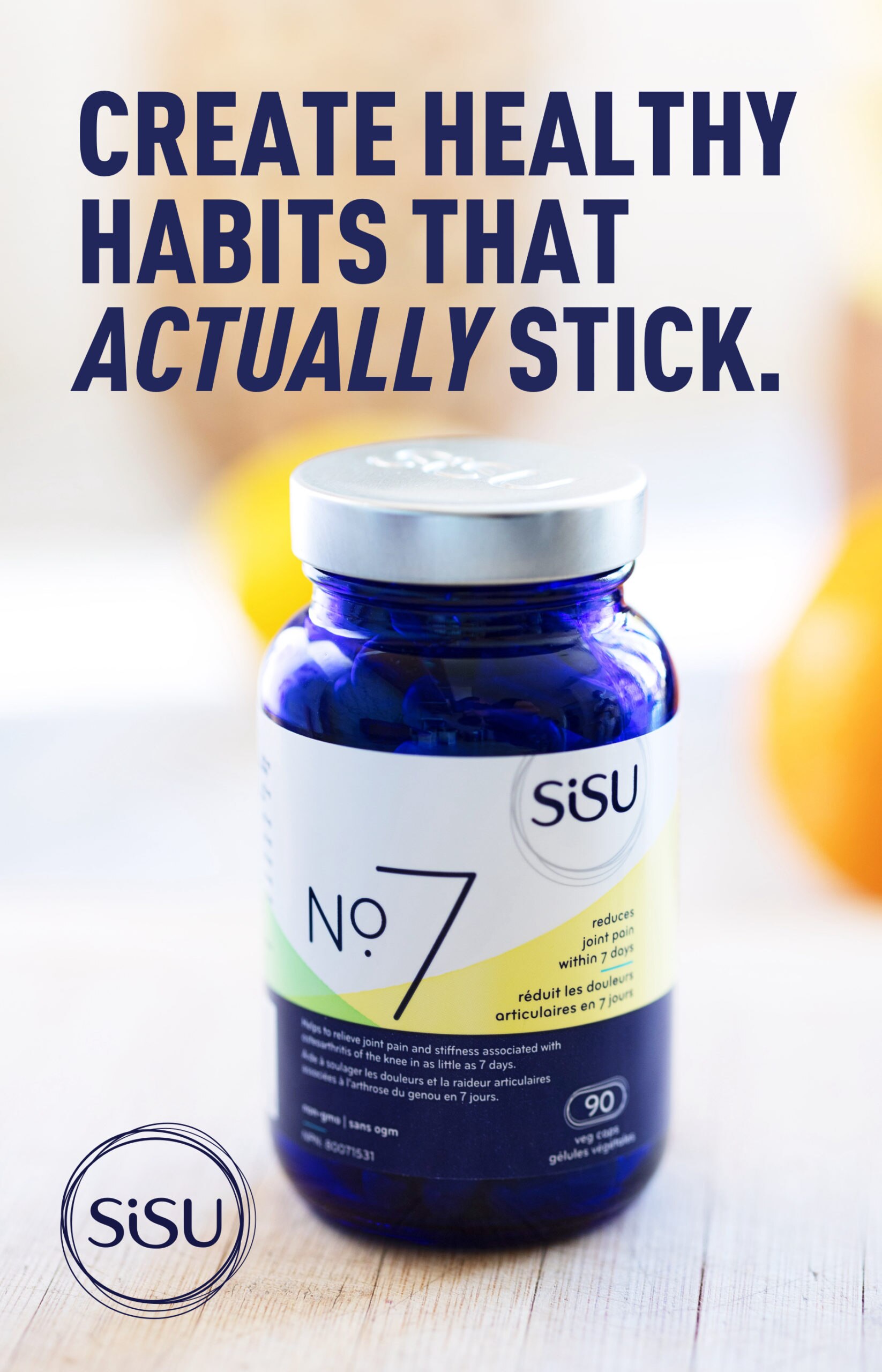

Setting New Year’s resolutions is one thing, but following through on them is challenging. One study discovered that 23% of people quit their resolution after one week. And over two years, only 19% of individuals were able to stick to their goals long-term.1
The key to making New Year’s resolutions stick is by turning them into regular habits. But even habits take time and energy before they become automatic.
Let’s look at strategies for developing habits that last and seven healthy habits that will set you up for success in the new year.
How long does it take to form a healthy habit?
Ultimately, there’s no one-size-fits-all answer. According to a study, it can take a person anywhere from 18 to 254 days. On average, it takes 66 days (two months) for a new behavior to become a habit.2
The amount of time it can take to form a new habit depends on the person and the habit. For example, forming a habit of taking vitamins every day may be easier than going to the gym every day.
When you’re starting to put new habits into motion, it’s natural to be motivated by an end goal. But looking ahead to that final outcome versus where you start can be overwhelming — and it is one of the reasons why New Year’s resolutions don’t stick.
Thankfully, we’re here to help you conquer your resolutions with confidence. If you want to build healthy habits that last, follow our guide below.
New year goal setting tips: How to create healthy habits that stick
Define your motivation
Think of motivation for your habits like a new home’s foundation—it needs to be strong and beneath the surface level. Setting goals and habits that align with your internal values and knowing why you want to accomplish them will give you a better chance at succeeding.3
If eating more fruits and vegetables is a habit you’d like to develop, define why it’s important to you. And try to be specific. Eating more fruits and vegetables to be healthy is one motivation, but why do you want to be healthy? Maybe you want energy to keep up with your kids or you finally want to run a marathon this year.
Whatever your motivation is, keep that in mind when you’re developing habits day-to-day.
Start small
When you’re creating new habits, it’s important to gradually implement small steps. Aiming high right from the start is not sustainable. Choose small steps you can take each day and add on as the habit starts to feel more manageable and automatic.
For example, if you want to create a habit of waking up earlier to have more time in the morning for yourself, start by setting your alarm to wake up 10 minutes earlier rather than 2 hours earlier. Then wake up 20 minutes earlier the following week, and so on.
Building habits using small steps can help you notice progress and encourage you to keep going.
Stack your habits
Use your current habits to your advantage! Build new habits by stacking them before or after existing ones like brushing your teeth or cooking dinner. By adding new habits to a routine that’s already automatic and strengthened by time, you’re more likely to stick to it.4
For example, if you want to meditate for 5 minutes every morning, do it right after brushing your teeth.
Track and celebrate your progress
When it comes to building new habits, tracking your progress can help you remain accountable while seeing how far you’ve come.
Don’t forget to praise yourself and celebrate each day or accomplishment. You can journal your progress or track it through a habit-tracking app like Streaks, Loop, or Habitify.
Find an accountability buddy
Team up with friends, partners, coworkers, or family members to build a new habit together. Having an accountability buddy can help you progress your goals while holding each other accountable and celebrating the small victories.
Social support is particularly beneficial in regards to maintaining exercise habits.5 You’re more likely to go to the gym in the morning if you made plans to go with a friend or a personal trainer.
Now let’s look at some healthy habits worth building this year.
7 healthy habits to start in the new year
Habits for physical health
Meal prep healthy foods
Meal prepping your food every week can set you up for success! Instead of figuring out what to cook every day, meal prepping assures that you will have a healthy meal waiting. It also saves you money and gives you more control over portion sizes.
Choose one morning or afternoon every week to prepare your recipes and store them in your fridge or freezer. Consider recipes that you already enjoy leftovers of and can quickly reheat or enjoy cold. Some good bases for meal prep recipes include cooked meat, roasted vegetables, soups, and sauces.
Regular exercise
There are many great reasons to start a regular exercise routine—from improving energy to supporting sleep and reducing stress. Canada’s food guide recommends adults should accumulate at least 150 minutes of moderate- to vigorous-intensity aerobic physical activity per week.
While you’re making a plan to integrate regular exercise in your schedule, focus on activities you enjoy. If you like dancing, sign up for dance classes or join a local runners group if you love to run.
Take your vitamins
Taking a supplement is a great way to fill in nutritional gaps in your diet or offer additional health support. Let’s take a look at a few of our favourites:
- Sisu Supreme Multivitamin helps support the body with a wide range of essential nutrients like the B-vitamins and vitamin C (Ester-C® brand). It also provides immune support and helps to maintain healthy metabolism.
- Sisu Nº. 7 combines 7 active ingredients to help support joint function. It also helps to relieve joint pain and stiffness associated with osteoarthritis – in as little as seven days!
- Sisu Energy Boost™ with Ester-C® has 1000 mg of Ester-C® brand vitamin C to help maintain immune function, B-vitamins for energy metabolism and electrolytes for good health.
Habits for mental health
A morning journaling routine
Sitting down to journal at the start of your day is a habit that can improve your mood and memory capacity. Because it has a substantial impact on your mental health and wellbeing, journaling can also support your immune health.6
Take five minutes while eating breakfast or sitting with your coffee to write down your thoughts. Here are a few journaling prompts to start your day:
- What are 3 things you are grateful for today?
- What are you looking forward to today?
- What can you do to set yourself up for success today?
Read before bed
Top off your day with a good book! Reading is a good habit before bed because it simultaneously stimulates and relaxes your mind. Studies have shown that reading can strengthen the brain’s networks and reduce stress.7 8
Not to mention, it can help you fall asleep faster. Watching TV or scrolling through social media keeps your mind awake because of the blue light emitted. Keep a book by your bedside table, read for 15 to 30 minutes, and notice how quickly you will fall asleep.
Habits for spiritual health
Form a regular meditation practice
Regular meditation can enhance your self-awareness and outlook on life. During meditation, you’re paying attention to your breathing and the thoughts that arise without judgement.
Meditation also generates greater feelings of wellbeing by promoting mental clarity and reducing stress.9
Find a time that works best for you and start with five minutes of meditation every day.
Make time for hobbies
Our hobbies are an excellent outlet for creativity, inspiration, and connection. Engaging with activities that we’re passionate about gives us a sense of inner pride and accomplishment. Some hobbies also facilitate social bonds and community.
Set a goal this year to make at least one hobby a habit. Whether it’s rock climbing, painting, or playing an instrument—carving out time for activities you enjoy will invigorate and inspire your spirit!

Make (and keep) your new year goals
Developing new healthy habits takes time and energy. When you define your motivations, start small, stack your habits, track your progress, and partner with a buddy, you’re more likely to keep those new year goals. Remember to take habit-building one day at a time—you got this!
To add more quick health and wellness tips to your feed, follow us on Instagram! (@sisuvitamins)
Always read and follow the product label. Products may not be suitable for everyone.
1 https://pubmed.ncbi.nlm.nih.gov/2980864/
2 https://onlinelibrary.wiley.com/doi/abs/10.1002/ejsp.674
3 https://journals.sagepub.com/doi/abs/10.1177/0734371X11421495
4 https://www.ncbi.nlm.nih.gov/pmc/articles/PMC3505409/
5 https://journals.sagepub.com/doi/abs/10.1177/105477380201100105?ssource=mfc&rss=1
6 https://www.cambridge.org/core/journals/advances-in-psychiatric-treatment/article/emotional-and-physical-health-benefits-of-expressive-writing/ED2976A61F5DE56B46F07A1CE9EA9F9F#
7 https://www.ncbi.nlm.nih.gov/pmc/articles/PMC4128180/
8 https://www.researchgate.net/publication/229431397_Stress_Management_Strategies_For_Students_
The_Immediate_Effects_Of_Yoga_Humor_And_Reading_On_Stress
9 https://pubmed.ncbi.nlm.nih.gov/24395196/

